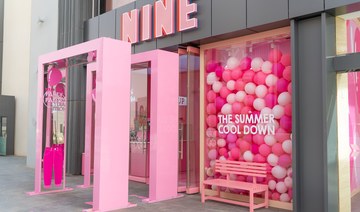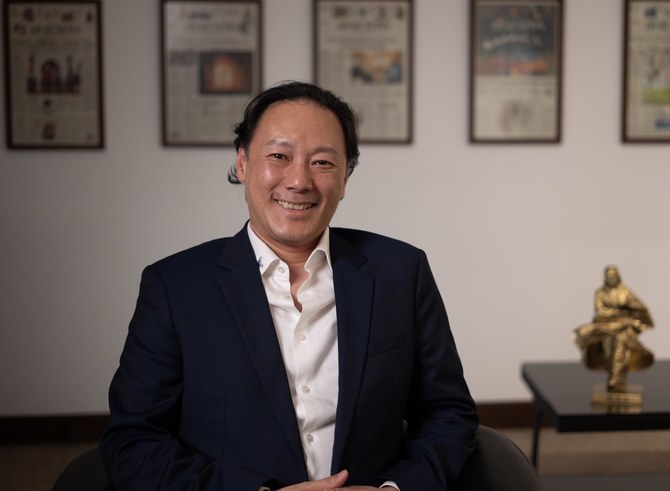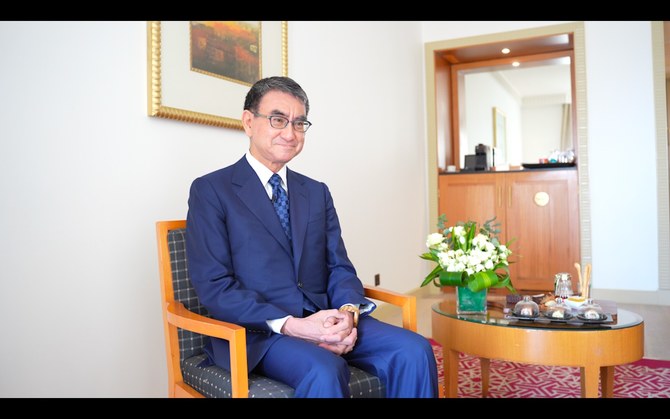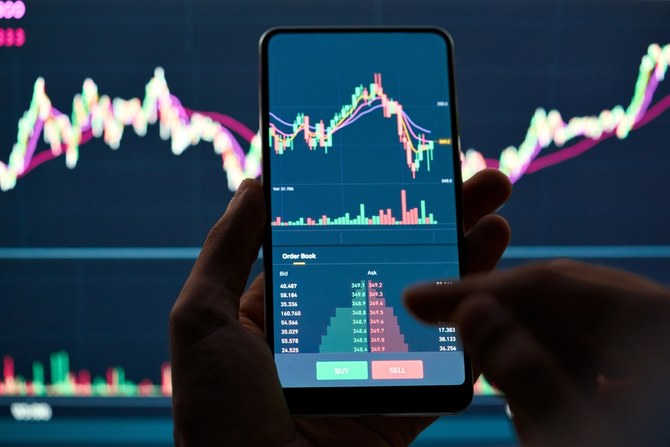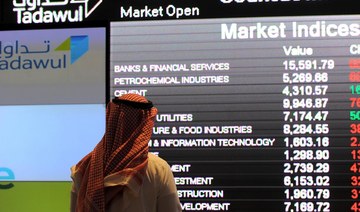The emergence of the omicron variant has thrown early signs of recovery in the global supply chain into doubt across the world, including in the Middle East and North Africa.
“There may still be swings, but overall, I think the worst is over,” said Esben Poulsson, who chairs the International Chamber of Shipping, on CNBC’s ‘Squawk Box Asia’ on Nov. 23.
But three days later the World Health Organization labeled the strain a “variant of concern,” after a South African scientist flagged its discovery. It rated the global risk posed by omicron as “very high.”
That news sent global markets tumbling as investors feared recovering economic activity would be hit as governments reimposed restrictions and lockdowns.
This has also shaken global supply chains that have faced bottlenecks, shortages, delays and rising prices since March 2020.
At any given time, around 25 million containers ply the seas, on about 6,000 ships, to ports that are linked to sprawling rail and road networks.
The average cost of sea freight fell 1.5 percent to $9,050.77 per standard 40 foot container last week, but this is almost three times higher than a year ago, according to the World Container Index, compiled by maritime research firm Drewry.
A key route between Shanghai and New York fell 5 percent to $12,582 per 40 foot container last week, but earlier this year at the height of the health crisis routes between the US and China peaked at around $20,500 per 40 foot container.
The index noted that the average cost of sea freight over the last five years had been $2,709 per 40 foot container.
These higher costs have fed into higher prices for all sorts of goods and commodities, from semiconductors, cars, turkeys, toys to energy costs.
Spot prices for Brent crude oil have doubled since the end of June last year, noted the Organisation for Economic Co-operation and Development in its most recent Economic Outlook.
It added that coal and natural gas have jumped by around eight times and 18 times respectively over the last 18 months, hitting peaks in October.
These higher costs have already pushed up inflation in many developed countries and will continue to do so, said the OECD.
The economic body raised its inflation forecast across G20 countries next year to 4.4 percent in its December Economic Outlook report, up from 3.9 percent in its September prediction.
The OECD said: “The outlook underlines the risk that continued supply disruptions, perhaps associated with further waves of COVID-19 infections, may result in longer and higher inflationary pressure.
“Another risk, exposed by the emergence of the omicron variant in recent days, is a worsening health situation due to COVID-19 resulting in further restrictions that would jeopardise the recovery.”

The sudden demand for working from home furniture had an impact on the global supply chain (Shutterstock)
High shipping prices stem from a rise in demand at the start of the pandemic from consumers who could not spend on items such as restaurant meals, holidays and trips to the cinema.
Instead they spent on goods for their homes, ranging from desks for makeshift offices, video game consoles for entertainment to larger grocery bills.
This caught producers in factories and farms who had reduced production on the hop, because they had been hit by labour shortages sparked by the health crisis.
This was the case in many of the world’s major manufacturing plants in China, South Korea, Taiwan, Vietnam as well as Germany.
The drive of factories and farms to ramp up production to meet higher demand led to shortages, bottlenecks, and lengthy queues in ports and warehouses across the supply chain. At the same time, health restrictions led to a shortage of truck drivers, who could not easily cross borders, or simply stayed at home.
These production problems have had wide-ranging effects across all types of industries.
In the first nine months of the year, car production in the euro area was 26 percent lower than in the same period in 2019, and 10 percent lower in the US, noted the OECD, largely due to a shortage of semiconductors and metals.
Even before the emergence of omicron, senior business figures were split on how long the effects of the pandemic would weigh on supply chains.
“This will not be an issue next year at all,” said JPMorgan Chase CEO Jamie Dimon at a virtual conference held by the Institute of International Finance in October.
The bank boss added: “This is the worst part of it. I think great market systems will adjust for it like companies have.”
But in the same month Dubai-based DP World, which runs 81 ports and inland terminals around the world, said it could take two years for the supply chain to return to order, partly because the world is so dependent on Chinese production.
“I don’t believe you will see an easing in the problem of supply chains for the next two years — it’s the ripple effect,” DP World Chairman and CEO Sultan Ahmed bin Sulayem told the Financial Times.
He added: “Delays today are not just the problem of what is not delivered, the problem is also the other products that can’t be delivered. They are in a queue now.
“China will not tolerate or allow any opportunity for this virus to spread. So, if they have an infection, they close the port — and that reflects in the supply chain.”

Ice-cream parlour chain Nine Soft Serve has seen an increase in supply costs (Supplied)
Jeddah-based logistics firm Uniworld Freight — which delivers sea, air and road cargo across 65 countries — highlighted that transport networks are currently still under strain.
Uniworld Freight CEO Mohammed Bawazir told Arab News: “We are facing several challenges. Our core business imports from the Far East, and most vessels are running out of space and there is also a shortage of empty containers. The price of ocean freight has increased by three times, and there is little stability.”
Bawazir added: “Based on our talks with customers, higher shipping costs have led firms to reduce orders, which in turn leads to lower output.”
The weight of the world’s fragile supply chain has also landed on a chain of six independent ice-cream parlors based in Riyadh, Dammam and Alkhoba, called Nine Soft Serve.
The outlet’s CEO Abeer Al-Hashim said: “I think everyone in the food and beverage industry is suffering from delays. Some suppliers in Europe have stopped production for a while, and that led to a shortage in supplies.”
Al-Hashim said she had seen an increase in prices from her suppliers and expects them to rise further next year, but has resisted passing this on to shoppers.
She said: “In fact, we are reconsidering our prices to make it more affordable to our customers.”
Al-Hashim added that her “goal is to be as independent as possible” and is currently working with a range of distributors to give her greater control over the company’s supply chain.
Firms across the world, from multinationals to one-shop retailers, are probably busy trying to figure out the same puzzle.




